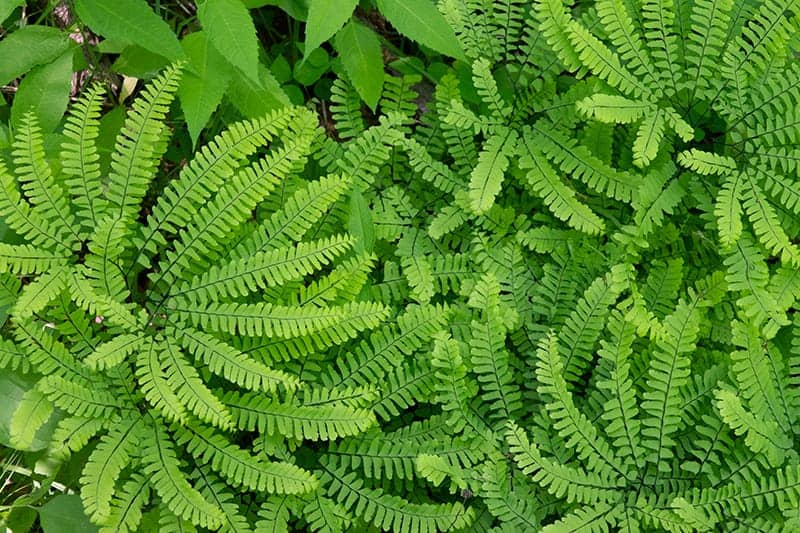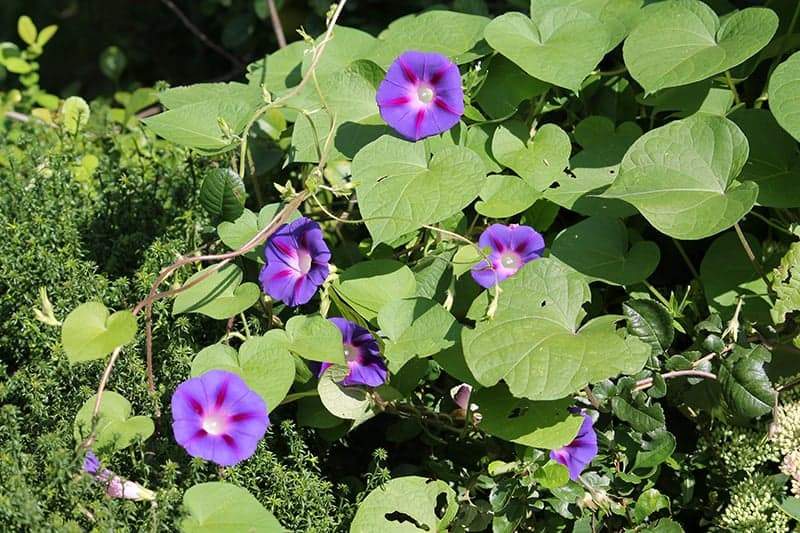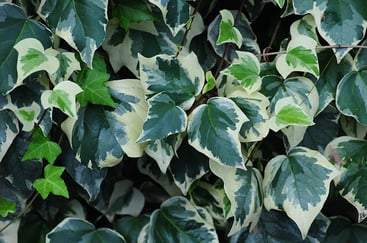- Home >
- Shrubs and Bushes >
- Foliage
Foliage for Sale - Buying & Growing Guide
Do You Know Your Growing Zone? i Growing zones help determine if a particular plant is likely to grow well in a location. It identifies the average annual minimum winter temperatures across the U.S. provided as a map by the USDA.
7 Results
Foliage – Buying & Growing Guide
As popular as flowers are, foliage can be equally impactful in your garden. Many shrubs and bushes have astoundingly beautiful leaves. Those leaves can be evergreen or deciduous and often have intriguing color patterns while creating captivating textures.
Types of Foliage Plants
| Type | Growing Zones | Mature Height | Sun | Features |
| Ninebark,
Physocarpus opulifolius ‘Diabolo’ |
3-7 | 4-8 feet | Full sun to part shade: 4-8 hours | Deep purple flowers with trident shape |
| Tatarian dogwood, Cornus alba ‘Bailhalo’ IVORY HALO | 3-7 | 4-6 feet | Full sun to part shade: 4-8 hours | Compact shrub, variegated leaves have white margins |
| Elephant ear, Colocasia | 9-11 | 1-2 feet | Partial shade: 2-4 hours | Some of the largest leaves you’ll find |
| Oakleaf hydrangea, Hydrangea quercifolia | 5-9 | 5-7 feet | Full sun to part shade: 4-8 hours | Unique leaf shape, large flower panicles, and decent fall color |
| Japanese pieris, Pieris japonica | 4-8 | 10-14 feet | Full sun: 6-8 hours | Rounded broadleaf evergreen tree with dangling white flowers |
| Witchhazel, Hamamelis virginiana | 5-8 | 15-25 feet | Full sun to part shade: 4-6 hours | Spider-like flowers, leaves are round with wavy edges |
| Adam’s needle, Yucca filamentosa | 5-10 | 4-6 feet | Full sun: 6-8 hours | Spike-shaped leaves, and prominent center flower stalk |
| Weigela,
Weigela florida ‘Verweig’ MY MONET |
4-8 | 1-2 | Full sun: 6-8 hours | Variegated leaves are green, white, and pink |
| American holly, Ilex opaca | 5-9 | 15-30 feet | Full sun to part shade: 4-8 hours | Bright red fruits and evergreen leaves with sharp points |
| Gold dust, Aucuba japonica ‘Gold Dust’ | 7-10 | 4-6 feet | Shade: 2 hours or less | Shiny green leaves have many gold flecks |
How to Plant Foliage Plants
Many of the best foliage plants require specific conditions to display their most impressive leaves. Often, sunlight is among the most essential of those requirements. Be sure to plant shade-loving plants in low-light areas and any full sun plants where they can receive the light they need.
You’ll need to meet all of your plant’s needs regarding soil moisture, acidity, and fertilization. If you are unable to meet those needs and suitably maintain foliage plants, the leaf colors may be dull and far less inspiring than you imagined. Variegated plants may lack contrast, while other leaf colors may not be as deep as they can be.
How to Grow Foliage Plants
- When. When planting outdoors, do so when your plants are in a dormant phase. Usually, springtime planting is best.
- Where. Choose a place where your foliage plant gets all the light it needs to thrive. Pair foliage plants to create an impressive foliage garden.
- How. Dig a planting hole with plenty of widths and an adequate depth. Then loosen the root ball of your plant and backfill with good soil.
How to Care for Foliage Plants
- Watering. Newly planted foliage plants need more water than usual. Once established, gauge the health of your plant’s leaves and provide water accordingly.
- Nutrients. If your foliage plant is not looking its best, it may not be getting the nutrients it needs. Each plant you raise will have a different preference for nitrogen, phosphorus, and potassium.
- Pruning. Branches on the decline draw nutrients that support healthier parts of the plant. Be sure to regularly prune to keep your plant’s leaves lush.
- Pollination. Although the main attraction to foliage plants is their leaves, many have great flowers as well. These plants typically rely on birds or insects to carry out pollination.










